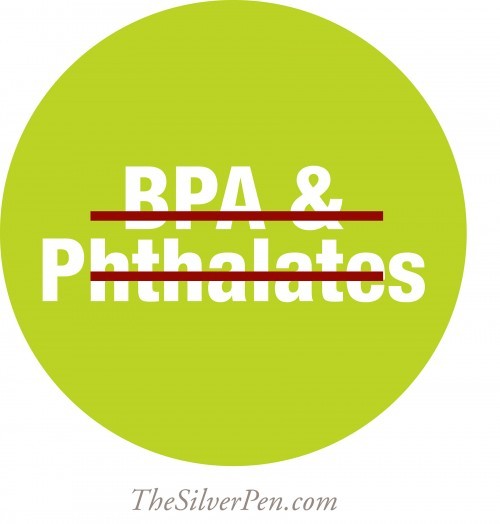By now, most of us have heard that there is indeed a link between plastic and cancer. Additionally, we have heard the warnings to avoid microwaving food in plastic containers and more recently to ditch the plastic water bottle. Ever wonder why? Turns out, plastic containers can release two harmful chemicals especially when heated: bisphenol A (BPA) and phthalates into the food or liquid through a process known as “leaching” or “migration.” Molecules of BPA and phthalates can migrate from plastic containers AND the insides of food cans that use an epoxy resin to combat corroding metal.
BPA (used in making hard plastic) and phthalates (pronounced “thal-ates” used to soften plastic) are both endocrine disruptors, which can interfere with the body’s hormone system. Potential damage may occur in the developmental, neurological and reproductive systems. The immune system is also threatened. While BPA mimics estrogen, phthalates interfere with testosterone production, which may result in lower sperm counts. Some scientists have linked BPA with breast and prostate cancer, heart disease, obesity, and thyroid problems. BPA, derived from petroleum, may even be responsible for hindering the effectiveness of chemotherapy drugs.
Complete avoidance of BPA and phthalates is virtually impossible; however, some general guidelines to curb your exposure include:
- Purchase beverages in non-plastic containers
- Eat less canned foods and consume more fresh and frozen foods
- Do not microwave food in plastic containers
- Use a paper towel or a microwave-safe glass lid rather than plastic wrap in the microwave
- Avoid heating acidic foods (tomatoes) and fatty foods (cheese and meat) in plastic, as they are especially vulnerable to “migration.”
- Choose soups and broths that come in aseptic boxes
- Store food in glass or Pyrex containers
- Discard scratched or worn plastic containers
- Hand wash plastics to reduce wear and tear
- Chop food on a wooden rather than plastic cutting board
- Cool food or liquids before putting them in a plastic container
- Be especially cautious with infants: use BPA-free baby bottles and sippy cups
Not all products contain BPA or phthalates. To avoid containers made from polycarbonate (BPA) and polyvinyl chloride (phthalates) check the recycle codes inside the “chasing arrows” on the product. Avoid the number 7 or the letters PC (may contain BPC) and the number 3 or letters PVC (may contain phthalates.) Recycle codes 1, 2, 4, 5, and 6 are generally safe. The number 1 indicates single use only. Okay to recycle after use.
Resources:
- http://www.goodhousekeeping.com/product-reviews/consumer-protection/plastic-safety-heat-food
- http://www.thekitchn.com/beyond-bpa-why-to-avoid-plasti-1407
- http://www.npr.org/2011/03/02/134196209/study-most-plastics-leach-hormone-like-chemicals
- http://www.fitday.com/fitness-articles/nutrition/healthy-eating/is-it-safe-to-microwave-plastic-food-containers.html#b
- http://www.health.harvard.edu/fhg/updates/update0706a.shtml
- http://www.webmd.com/food-recipes/features/cookware-plastics-shoppers-guide-to-food-safety
- http://www.webmd.com/parenting/baby/features/bisphenol-a-9-questions-and-answers



Good to know FYI on the dangers of plastic. Thanks for this post, Hollye.
Absolutely, Carolee. My pleasure, always!